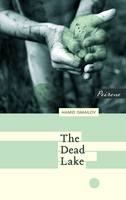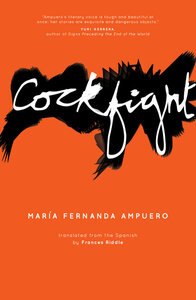Notes on some of my recent reading…
 Jessie Burton, The Miniaturist (2014)
Jessie Burton, The Miniaturist (2014)
Amsterdam, 1686: Nella Oortman is aged eighteen and about to begin her new life as wife of the successful merchant Johannes Brandt – but she is met at the house by Brandt’s stand-offish sister, Marin; the merchant himself is nowhere to be seen. There are secrets to be uncovered in the Brandt household, and someone seems to know about them than ought to be possible – the mysterious miniaturist who sends Nella models for the replica house that was Brandt’s wedding gift. The Miniaturist is a pacey historical mystery; but it’s also about what it means to challenge social roles – Nella, Brandt and Marin all step outside the norms that society prescribes for them, and Jessie Burton explores the ramifications of this in an intriguing debut.
Andrew Crumey, Mr Mee (2000) and Mobius Dick (2004)
Andrew Crumey has been on my list of authors to try for quite some time, having head very good things about his work. Now I have tried him – thanks to Dedalus Books and their new editions of two Crumey novels – and my only regret is that I didn’t do it earlier.
I can’t think of a better way to sum up Crumey’s work in a few words than ‘comedy of ideas’, which is how its blurb describes Mr Mee. Crumey presents us with three narrative threads. In the first, Mr Mee – an elderly amateur researcher – writes to an unknown correspondent detailing his attempts to find out more about Jean-Bernard Rosier, an 18th century French thinker who appeared to have some fairly advanced ideas on physics. The second thread takes us to Paris of 1761 and Ferrand and Minard, copyists in possession of Rosier’s writings, who flee the city and end up living next to Jean-Jacques Rousseau. The third strand concerns Petrie, a university lecturer on Rousseau who wants to get closer to one of his students. There’s a good deal of humour in this novel – particularly in Mr Mee’s delightful unworldliness, as he tries to navigate the byways of the internet – but also intrigue from seeing how the different plot threads will tie together. And, though Rosier’s rarefied ideas may be at the root, I find it’s the simpler, more personal revelations that really hit home in Mr Mee.
Both of these books remind me of Christopher Priest’s work, particularly in the sense that reality within them is mutable, but this is mediated through textual accounts, with the added layers of uncertainty that they bring. Mobius Dick put me specifically in mind of Priest’s The Affirmation, as both create multiple realities that vie for validity. Crumey switches between the stories of John Ringer, a university lecturer in quantum physics; and Harry Dick, a man who wakes up in hospital having lost his memory. Alongside these are extracts from novels by one Heinrich Behring, often featuring Erwin Schrödinger. There are contradictions between the different narrative tracks, and once again, the intrigue comes from seeing exactly how these will be resolved. Science and art are intertwined in Mobius Dick, with the sense that both are different ways of addressing the idea of ‘reality’. I like that approach, and I’ll be reading more of Crumey in the future.

Hamid Ismailov, The Dead Lake (2011)
Translated from the Russian by Andrew Bromfield, 2014
This short novel by Usbek writer Hamid Ismailov is the first title in Peirene Press’s ‘coming-of-age’ series. It’s the tale of Yerzhan, a promising young violinist from the Kazakh steppes who has a crush on his neighbour’s daughter, Aisulu. Yerzhan’s life is changed irrevocably when, trying to impress, Aisulu, he dives into a lake which has been poisoned by nuclear testing – and his growth is arrested from thereon.
There’s a fairytale quality to The Dead Lake, as events take an absurd, exaggerated turn; for example, while Yerzhan’s body remains that of a child, Aisulu grows immensely tall. This quality is reflected in the tone of Andrew Bromfield’s translation, which also evokes the vast openness of the landscape in which Ismailov’s story takes place – an openness that contrasts with the way Yerzhan has become trapped. The Dead Lake as a whole is a work of contrast, one that might appear whimsical at times, but never lets you forget the seriousness lying underneath.
Linda Mannheim, Above Sugar Hill (2014)
This collection is from Influx Press, a publisher of ‘site-specific’ fiction. The stories in Above Sugar Hill are all set in Washington Heights, the area of New York City where Linda Mannheim grew up. It’s not a place I know myself, but Mannheim’s characters, and the worlds they inhabit, come vividly off the page. A couple of examples: ‘Once’ tells of a troubled girl’s on-off friendship with a woman who had a difficult past of her own; the background is one of idealism and protest fading away, just as some of the local buildings are decaying. In ‘Tenor’, through a series of interviews, we hear of Ira Gittman, a housing activist who disappeared in tragic circumstances; it is implied that Gittman’s story could be the story of many others – and the whole collection implies that there are many more stories like these out there, waiting to be told.
Like this:
Like Loading...




Recent Comments